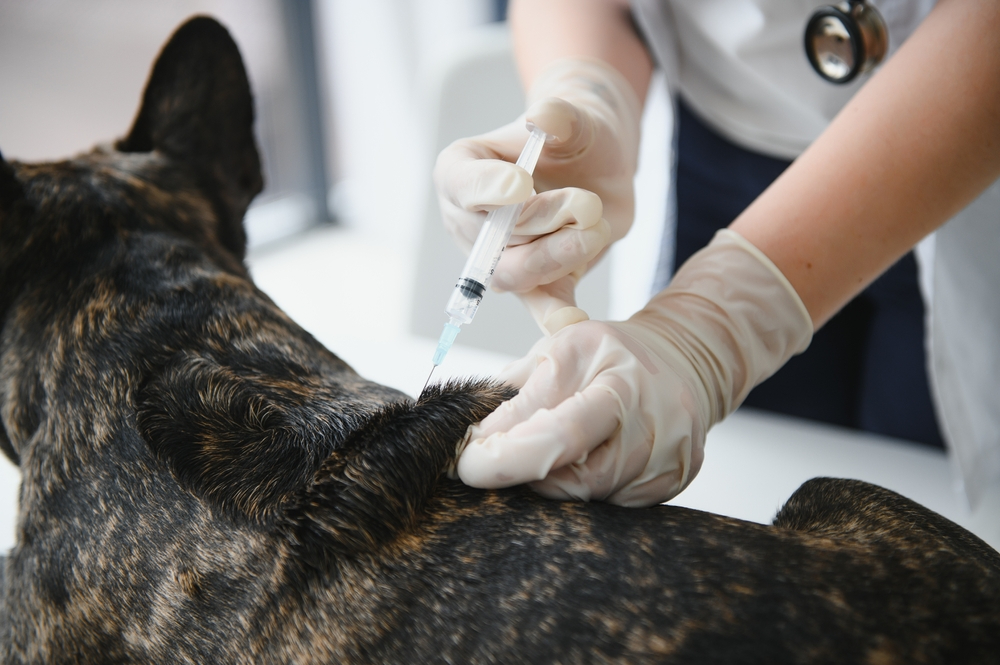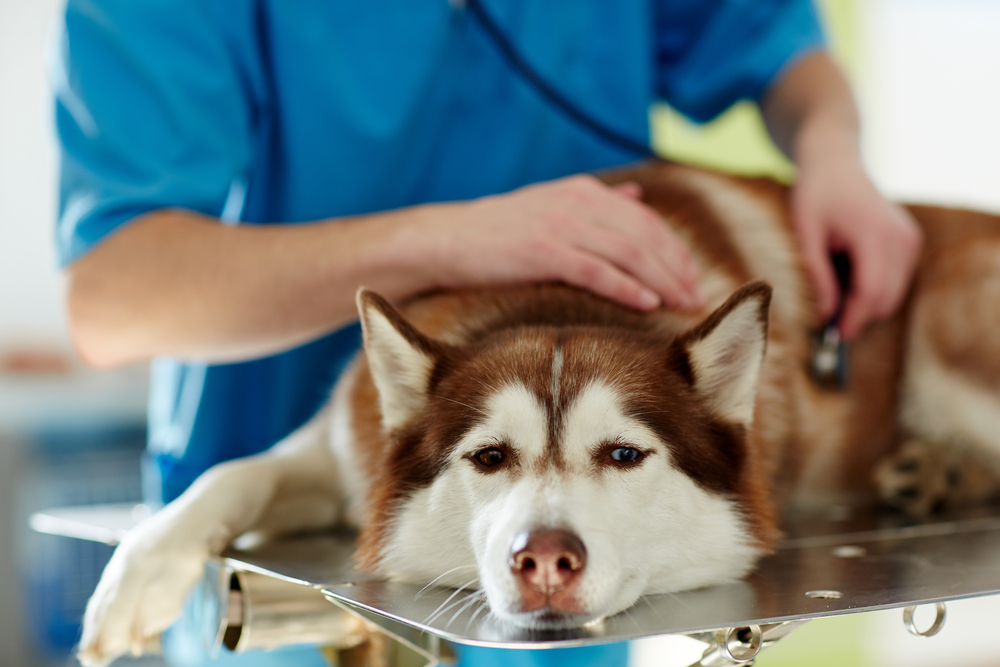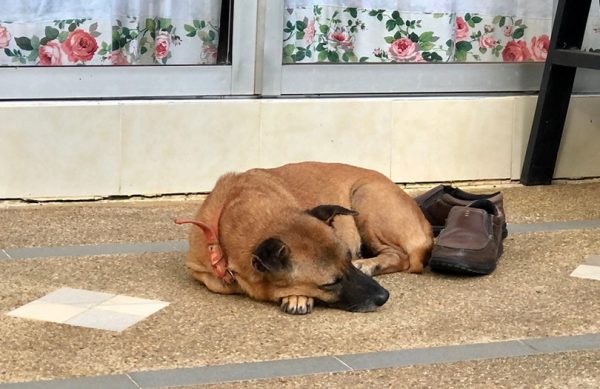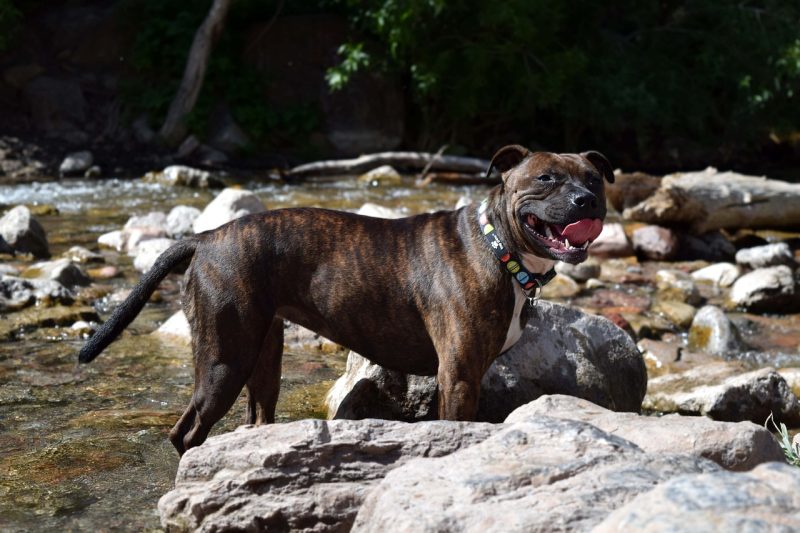Lymphoma is a cancer of the lymph nodes and lymphatic system. This is the most common form of cancer in dogs, representing roughly 15–20% of all new cancer diagnoses in dogs. Unfortunately, it is also a serious and progressive disease, to which most dogs succumb. Any cancer diagnosis can be overwhelming as a pet owner; if your dog has been diagnosed with lymphoma, you may have several questions or concerns.
What causes this cancer to arise? How do we know if it has spread to other parts of the body? Are there any treatment options to achieve a cure? This article will explore lymphoma in depth. We would like to emphasize, however, that there is vast variation in the types of lymphoma.
There is no “one size fits all” approach to managing lymphoma in dogs, so we recommend discussing all options with your veterinarian.

What Is Lymphoma in Dogs?
In dogs (as in people and other mammals), the lymphatic system comprises the lymph nodes, lymphatic organs such as the spleen and thymus, as well as lymphatic vessels. Together, this system is responsible for maintaining fluid balance in the body, while also protecting the body from infections and toxins. One of the key cells of the lymphatic system is the lymphocyte (one of the immune cells).
When lymphoma occurs, these lymphocytes no longer exist in a safe, regulated way. The cells have become malignant or “nasty”, with uncontrolled cell division, and spread to other parts of the body.
- Multicentric lymphoma: This is the most common form of canine lymphoma. In multicentric lymphoma, all of the dog’s lymph nodes are affected.
- Alimentary lymphoma: This form of lymphoma affects the digestive tract.
- Mediastinal lymphoma: The mediastinum is an anatomic passage in the chest space. The lymph nodes or thymus within it can develop lymphoma.
- Extranodal lymphoma: This is rare but affects other organs of the body (outside of the lymphatic system). The skin, eyes, nervous system, and kidneys may be involved.

What Are the Signs of Lymphoma in Dogs?
The signs associated with lymphoma are variable; they are largely dependent on the type of lymphoma (see above), as well as how malignant and advanced the disease is.
With multicentric lymphoma, notably enlarged lymph nodes are often the first sign owners detect. These lymph nodes may also be observed on a routine check-up, as many dogs are otherwise bright and happy at this stage in their disease. Enlarged lymph nodes feel like firm, round lumps. They can be felt under the chin, on the shoulders, in the armpit and groin regions, as well as behind the knees.
Alimentary lymphoma will usually result in gastrointestinal signs such as vomiting, diarrhea, and weight loss. Mediastinal lymphoma causes coughing, labored breathing, and shortness of breath. Signs of extranodal lymphoma are reliant on which organ is involved—it may be vision changes (if the eyes are involved) or blood in the urine (if the kidneys are involved).
If you’re concerned about your pet’s well-being, we recommend you contact a veterinarian.
If you need to speak with a vet but can't get to one, head over to PangoVet. It's our online service where you can talk to a vet online and get the advice you need for your pet — all at an affordable price!
What Are the Causes of Lymphoma in Dogs?
Like many cancers in pets and people alike, the exact cause of canine lymphoma remains a mystery. The development of lymphoma is likely “multifactorial”, meaning several factors trigger or contribute to cancer formation. Some of these factors are environmental, and others are genetic or hereditary.
A genetic component is suspected as certain breeds appear to be more commonly afflicted by lymphoma than others. More specifically, Chow Chows, English Bulldogs, Golden Retrievers, German Shepherds, Beagles, Rottweilers, Saint Bernards, Poodles, and some Terriers are at greater risk of developing lymphoma.
Diagnosing Lymphoma in Your Dog
There are a few steps involved in establishing the diagnosis of lymphoma.
For multicentric lymphoma (the form that causes lymph nodes to palpably enlarge), the first step is a fine needle aspirate. This involves placing a small needle into the lymph node and “sucking up” a few cells. The cells are then spread across a microscope slide, and analyzed by a veterinary pathologist, looking for evidence of cancerous cells.
A fine needle aspirate usually provides enough information to ascertain that lymphoma is present. Additional tests, such as flow cytometry or immunocytochemistry, are often used to determine which type of lymphoma is present.
If the fine needle aspirate sample is inconclusive, or if lymphoma is affecting internal organs that cannot be aspirated, a biopsy may be indicated. This involves surgically cutting out a small piece of affected or suspicious tissue and submitting this to the pathology lab for analysis.
Once the lymphoma diagnosis is clear, vets may recommend something called staging. Staging is, in essence, an effort to see how far lymphoma has spread through the body. This involves blood tests, abdominal ultrasound, and chest X-rays. An MRI scan might be recommended in some cases.

How Is Lymphoma Treated in Dogs?
Currently, the treatment option that provides the longest survival time in dogs is chemotherapy. You might hear the term “CHOP” used; this is an acronym for the four most common chemotherapy drugs used in lymphoma protocols. The first course of chemotherapy treatment usually takes approximately 6 months. Remission can be achieved, meaning that all of the signs of lymphoma subside, but a cure is rare. Lymphoma will return at some point in the future.
If chemotherapy is not pursued, which may be the case for several reasons, palliative care plans will be established. This often involves using prednisolone, a steroid medication, to temporarily “shut off” the cancerous cells. This will bring some temporary relief but is not nearly as effective as chemotherapy plans. Supportive care such as anti-nausea medications, pain relief, and a quality diet are also beneficial.

Frequently Asked Questions
What Is the Prognosis for Dogs with Lymphoma?
Unfortunately, the prognosis for dogs with lymphoma is poor. The average survival time with chemotherapy is one year. With prednisolone therapy alone, average survival times are 4–6 weeks. It is important to note that these are averages: some dogs will live less than 4 weeks, while others may live for 2 years. The prognosis should be discussed in more detail with your veterinarian.

What Does Chemotherapy for Dogs Involve?
Chemotherapy involves a series of injectable medications, given at the vet clinic, as well as tablet medications given at home. This generally occurs over a 6-month period, though there is variation in timelines, and additional treatment may be needed if the dog “relapses”.
Regular blood tests are important to ensure that the affected dog’s body is handling chemotherapy. It is worth noting that the vast majority of dogs tolerate chemotherapy very well—much better than people. Side effects are relatively rare, and loss of hair does not occur.

Conclusion
Lymphoma, the most common form of canine cancer, is a cancer of the lymph nodes and lymphatic system. While treatment options exist, the prognosis is generally poor. If you have noticed that your dog has enlarged lymph nodes, contact your veterinarian to arrange a consultation.
If your dog has been diagnosed with lymphoma, we recommend working closely with your trusted vet to ensure the best quality of life for your dog.
Featured Image Credit: Pressmaster, Shutterstock




















